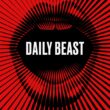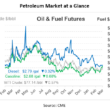American Media Inc (AMI) has sold the 93-year-old sensationalist US tabloid the National Enquirer, along with the National Examiner and The Globe, to James Cohen, former owner of Hudson newsstands in US airports and rail stations. The price was $100m. The brands reportedly generate almost $30m of EBITDA (about 25% of AMI’s total profit), although copy sales of the Enquirer have fallen from over 6m in the 1970s, to 500k in 2014, and only 218k now. The Globe also saw weekly sales fall 34% to 117k over the last four years.
For all that, the 10 weeklies in AMI’s celebrity group have still been selling 1m retail copies at an average cover price of $5.
The surprising profitability of the three divested weeklies is partly due to AMI’s low operating costs and high cover prices, and partly to National Enquirer’s diversification strategies which the new owner hopes to accelerate. It produces TV documentaries for Investigation Discovery and the Reelz channel, and operates theme parks in Missouri and Tennessee. For all the dirt, it’s a big brand.
The sell-off reflects the financial and political pressure to which AMI has been increasingly exposed. The company is reported to have a menacing $1bn in borrowings,re and efforts to refinance $400m of the debt apparently had to be scrapped last year after the publisher’s admitted involvement in paying hush money on behalf of President Trump, which was claimed to constitute unlawful election campaign expenditure. The sale proceeds will now be used to pay down debt and ease the pressure, just a bit.
National Enquirer’s continuing influence and ability to scare its political prey, despite reduced copy sales, is largely due to the simple fact that these magazines are sold principally at supermarket check-outs: their cover stories (and even some of the inside content) are seen by millions of shoppers waiting with their groceries. Like the UK national daily newspapers which similarly benefit from persistent “reviews” on TV and radio, many more millions see and hear the content than ever pay for it, and politicians know it.
That is the enduring power of the National Enquirer which, it seems, will now become a (sort of) collaboration between Pecker and Cohen, two old friends who, in 2011, together acquired the US edition of OK! magazine. Cohen’s company currently distributes AMI’s magazines and the acquisition includes a multi-year service contract that will apparently generate substantial fees for AMI to provide publishing, financial and distribution services for its former tabloids.
David Pecker will, therefore, still be involved in the magazines which have been a central part of his life for the past 20 years – and which have been sold at the direction of the company’s 80% shareholder Chatham Asset Management. The hedge fund had been under pressure from its own investors, which include several state pension funds, because of its connection to the Enquirer.
The world’s most famous tabloid had been accused of covertly helping President Trump to win the 2016 election (including through “catch and kill”: buying-up seriously negative stories and not publishing them). But some of the stories it did publish were just as outrageous, including claims that presidential candidate Hilary Clinton was dying (and would be dead soon after the election), that President Obama had bugged Candidate Trump, and that another Trump rival Ted Cruz’s father was implicated in the 1963 assassination of President Kennedy. No story seems to have been too wild to tell in pursuit of copy sales and/or favours for friends, especially the man who would become President. More recently, the National Enquirer has been accused of blackmailing Amazon boss Jeff Bezos with lurid personal pictures. For the majority shareholder, that was one sensational story too far. It’s a big change.
The National Enquirer has long been a personal mission for David Pecker who has been choosing the cover every week. Like all AMI’s tabloids, it has few subscribers and minimal advertising. Most of the revenue comes from impulse copy purchases at the checkout. Pecker says a successful cover can add or subtract 15% from weekly sales.
He started out as an accountant and has imposed a stats-based discipline on the wild world of tabloids, building a database of covers, headlines and sales over the past 20 years (including those of competitors). Arguably, he has brought some science to the whimsical world of celebrity gossip. But, after two decades of personally vetting such stories and writing sensational cover lines, Pecker will now focus on his fitness and lifestyle brands including Men’s Fitness, Muscle & Fitness, Mr. Olympia Contest, Star, OK!, Us Weekly, In Touch, Radar Online, Men’s Journal, Closer, and Life & Style.
That’s a pretty solid portfolio at a time when specialist magazines are hot. But they are unlikely to get President Trump tweeting or inviting Pecker back to the White House. AMI without the National Enquirer doesn’t seem to justify the swagger of a CEO who has acted the old-fashioned media proprietor.
That’s why this may be a watershed as much for the National Enquirer as for David Pecker, the grafting New Yorker who started work at 16 to earn the house-keeping money after the death of his bricklayer father. He did book-keeping for local firms. After qualifying as an accountant, he worked for Price Waterhouse, where he studiously learned everything about every businesses he was auditing. He always worked hard on the detail. His entree into the media was via broadcaster CBS (then also a publisher of specialist magazines) first in the accounts department and, then, almost everywhere else.
Always looking for a break-out opportunity, he and entrepreneur Peter Diamandis pulled-off a $650m MBO for CBS Magazines in 1988. Scarcely a year later, they sold the slimmed-down company for $712m to Hachette, the French publisher of Paris Match. But the honeymoon didn’t last: Diamandis and most of his top team quit Hachette after a stormy meeting with French board members. Pecker saw the chance, stayed behind and became CEO of the US company which published magazines like Elle, Premiere, and George – a short-lived collaboration with the late John F. Kennedy Jr.
Insiders say that Pecker made his mark by continually blurring the lines between editorial and advertising – and also getting into trouble by doing favours for famous friends: “He seemed more interested in what magazines could do for him than what he could do for magazines. As far as we could tell, magazines were a vehicle for helping your friends and, consequently, yourself. David was always dealmaking and throwing people under the bus to get what he needed.”
Pecker was also said to treat John F. Kennedy Jr as a possession: “John was like a toy. He was like a shiny object that David could tout out to these advertisers, potential advisers and people he wanted to rub elbows with.” Some editors grew tired of the favours for friends, but many acknowledged the business smarts that enabled Pecker to make money even from struggling magazines. “David clearly had energy and a sort of fearlessness. He was willing to do things that other people wouldn’t. There was a humorous side to him because of his bravado and this kind of swagger he would have in the office. It was kind of amusing…but you knew that the man could retaliate if he wanted to.”
It is 22 years since Advertising Age noted that Hachette Filipacchi’s $15m acquisition of Travel Holiday from Reader’s Digest was a trademark deal for Pecker: “Pick up a money-losing third- or fourth-tier title at a low price, trim-back staff, plug it into a centralised sales operation and – presto! – turn a profit.”
Pecker’s competitors have described him as a “bottom fisher” because of his penchant for avoiding competitive bidding wars in order to concentrate on seemingly less desirable titles. Steve Florio, of Conde Nast, once said his rival “has mapped out a very aggressive growth plan. But his strategy has never been very clear. That may be because he is very smart or because he doesn’t have a strategy.” But Pecker saw himself as a “market contrarian” who took chances on unprofitable titles such as Home (bought in 1991) and Metropolitan Home (1992). “All the magazines we took over were losing money … and they all made money in their first full year under Hachette,” he claimed. As if to confirm his assertions and also those of his rivals, Pecker’s Travel Holiday acquisition saw him keeping only 14 of the 50 staffers on the magazine. That was how he did it.
Pecker’s cost-cutting and micro-management has often lost him senior talent but you can’t find people who think he cares: “He can’t give up any control. Everyone is fighting for their lives. That can become pretty sinister after a while. Everyone reports to David. If I want to buy pencils for my division, David has to approve it.” The only possible sign that Pecker cares what the world thinks of him might be his smart dress sense.
This month’s sale of National Enquirer neatly marks the 20th anniversary of Pecker’s appointment as CEO of AMI after the company’s purchase by Evercore Partner for a total of $770m including debt. In between (and before the Trump campaign shenanigans and the Bezos scandals), the company has survived a 2001 anthrax attack on its Florida office which killed one of its photographers and left others critically ill, and a $1bn bankruptcy in 2010.
But nobody is better with the money than this former 24/7 accountant. AMI, which had seen revenues fall from $321m in 2012 to $223m in 2016, is now faring much better than any print-dominated portfolio is entitled to expect, partly due to trademark low-cost acquisitions. In September last year (before he was forced to divest his beloved National Enquirer), Pecker was exuding optimism in an unusual financial disclosure which reflected the private company’s need to bolster investor and lender confidence:
- Built upon the successful acquisitions of the Bauer titles (Life & Style, In Touch, Closer, Teen Boss, J-14, Bake It Up, Girls World, Animal Tales, Coloring with Mommy, and Quiz Fest) coupled with the full year results of its Wenner Media Acquisitions (Us Weekly and Men’s Journal), AMI is poised to post its best results in several years. Revenues are estimated at $140m for the period ending 30 Sept 2018, up $7m (+5%) over prior year and adjusted EBITDA estimated at $48m – up $8m (+20%).
- For the year ending March 31, 2019 total revenue is forecast at $310m – up $32m (+12%), and EBITDA of $120m – up $24m (+25%).
The CEO also hyped AMI’s fledgling digital activities:
- Podcasts: It has launched more than a dozen weekly series podcasts across its celebrity brands, as well as the 12-part audio documentary podcast, “Fatal Voyage: The Mysterious Death of Natalie Wood,” which became the #2 program among all Apple podcasts worldwide with 4m+ downloads.
- TV/Video Broadcast: It is growing production collaborations with Investigation Discovery, producing 20 hours of programming as well as producing four non-scripted documentary shows for REELZ.
- Digital: AMI’s network of websites delivers some 68m monthly uniques
For all the weirdness, the AMI boss has a track record of cranking profits out of magazine brands, especially those discarded by others. Anybody but the tenacious David Pecker might have given some signs of hurting from the humiliation of being forced to sell the legendary tabloid to which he has given so much of himself. But the mask has not slipped and the company continues the uphill fight to reduce its troublesome borrowings and cost of capital. It’s tough, not least with this month’s disposal of 25% of current profits. One thing Pecker’s friends and enemies agree is that he never gives up. Let’s watch.




